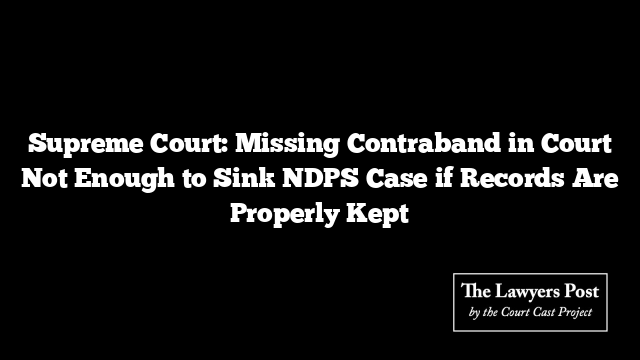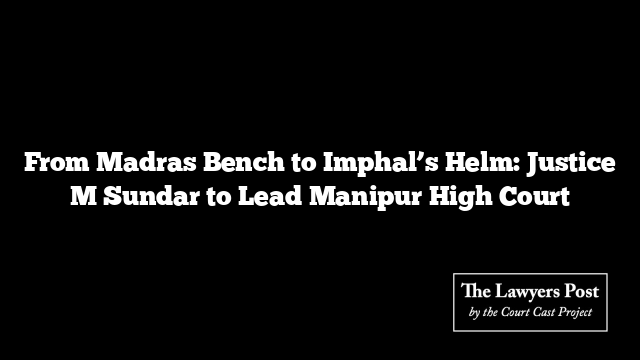The Supreme Court has ruled that narcotics cases under the NDPS Act cannot collapse merely because the seized contraband is not produced before the trial court, provided the seizure, inventory, and sampling are properly documented under Section 52A.
A bench of Justices Manoj Misra and Ujjal Bhuyan overturned an order of the Nagpur bench that had directed a retrial in an NDPS case on the sole ground that the contraband was not produced in court. The Court clarified that retrials are a remedy of last resort, permissible only to prevent a miscarriage of justice—not for procedural nitpicking.
The judges stressed that reliable evidence in the form of inventories, sealed samples, and FSL reports suffices to establish a link between the seized material and the prosecution case. “Mere non-production of the bulk contraband may not be fatal,” the Court noted, so long as the official paperwork and certified electronic records are intact.
The case stemmed from coordinated raids in which nearly 147 kilograms of ganja were seized. The trial court had convicted two individuals, but the High Court later set aside the conviction and ordered a retrial, citing lapses like non-production of the contraband and failure to play raid videos in court. The Supreme Court found this approach unsustainable.
Citing earlier rulings, the Court emphasized that once electronic evidence is certified under Section 65B of the Evidence Act, it is admissible without being replayed for witnesses. If further clarification was needed, the High Court could have invoked its power under Section 391 CrPC to admit additional evidence instead of restarting the entire trial.
The bench concluded that the Nagpur order had gone too far. It remitted the case back to the High Court for a fresh decision within six months, underscoring that technical defects cannot be allowed to derail a prosecution when the essential evidentiary chain remains intact.





